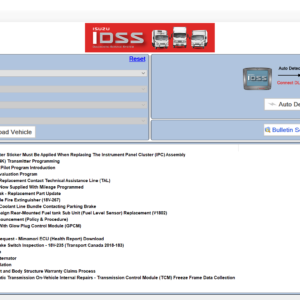Understanding Detroit Minority Business Enterprises (MBEs)
126 $ Original price was: 126 $.105 $Current price is: 105 $.
Brand: DETROIT MBE
Version: 2025.1
File Size: 850 MB
License Time: 2 year
Software Type: Standalone Application
Region: Global
OS Support: Windows 10 and 11
Category: All Product
Size Installed: 1.2 GB
Database Language: English
Interface Language: English
Detroit Minority Business Enterprises (MBEs) are a vital part of the city’s economic and cultural landscape. Beyond Detroit’s automotive legacy, minority-owned businesses play a key role in driving innovation, job creation, and community development.
What Are MBES?
Minority Business Enterprises are businesses that are owned, operated, and controlled by individuals from minority groups, including African American, Hispanic, Asian American, Native American, and other underrepresented communities. These businesses help address economic inequality while bringing diverse perspectives to the marketplace.
Importance of MBEs in Detroit
MBEs significantly contribute to Detroit’s economy by creating jobs, supporting local supply chains, and reinvesting in their communities. They help diversify the city’s economic base, strengthen resilience, and foster inclusive growth.
Key Industries and Challenges
Detroit MBEs operate across many sectors, including construction, food and beverage, technology, and professional services. Despite their impact, minority entrepreneurs often face challenges such as limited access to capital, intense competition, regulatory complexity, and fewer networking opportunities.
Support and Resources
To support MBEs, Detroit offers a range of resources, including government programs, supplier diversity initiatives, non-profit organizations, and alternative financing options like CDFIs. These resources help minority entrepreneurs gain access to funding, mentorship, training, and contract opportunities.
Networking and Community Engagement
Networking is essential for MBEs. Local events, business associations, and partnerships enable minority entrepreneurs to share knowledge, build relationships, and access new markets. Collaboration often helps MBEs scale their operations and improve visibility.
Future Opportunities
The future of Detroit MBEs is promising, driven by growth in technology, e-commerce, sustainability, and health-focused markets. Advancements in digital tools and increasing emphasis on diversity and inclusion are creating new opportunities for minority-owned businesses to expand and innovate.
Conclusion
Detroit MBEs represent resilience, creativity, and economic empowerment. By leveraging available resources, embracing technology, and building strong networks, minority entrepreneurs continue to shape Detroit’s future and strengthen its communities.
📥 Contact Us:
🌐 Website: www.diagtechpro.com
📲 WhatsApp: https://wa.me/message/K6JOQMVFBGSAD1
📧 Email: di4gtechpro@gmail.com
Be the first to review “Understanding Detroit Minority Business Enterprises (MBEs)” Cancel reply
Related products
All Product
All Product
All Product
All Product














Reviews
There are no reviews yet.